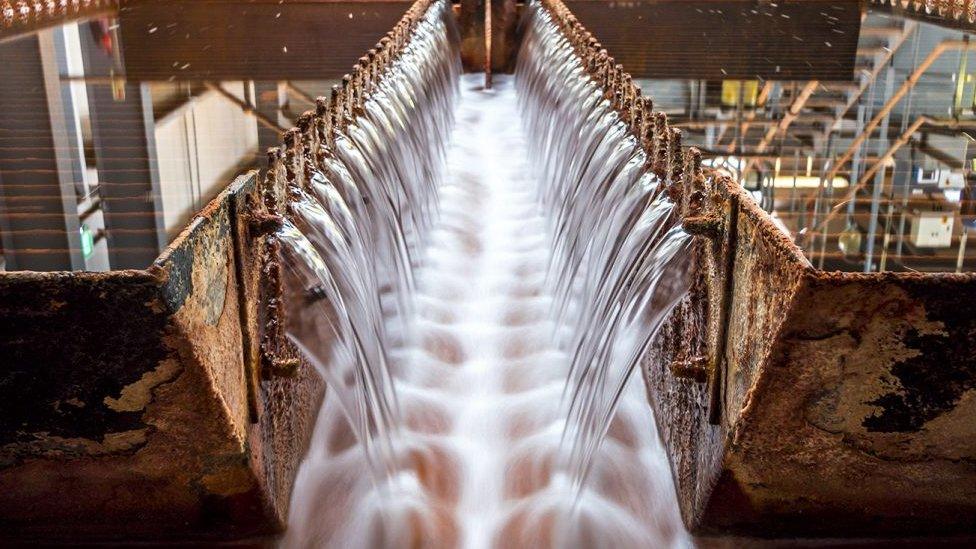Cambridge wastewater plant: Residents vow to continue campaign
- Published
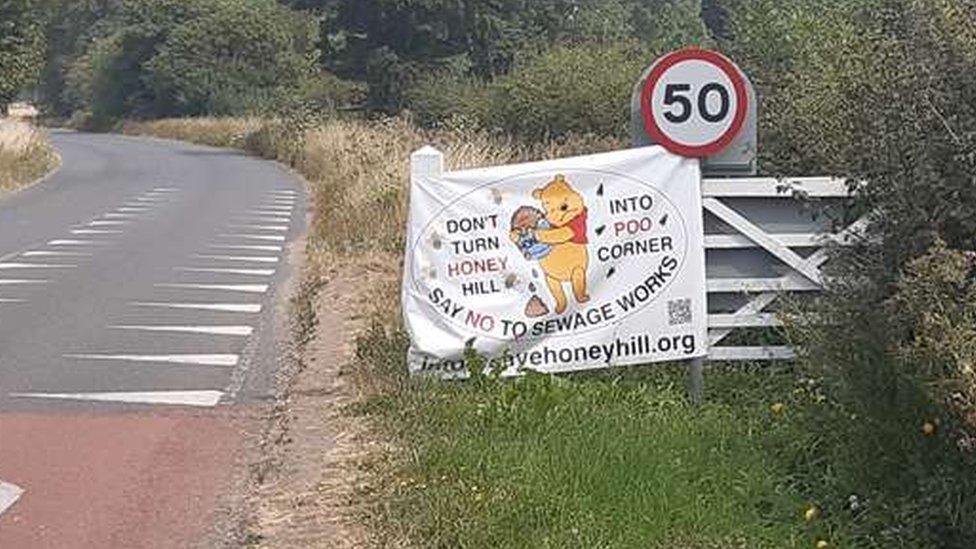
Campaigners erected signs at the Honey Hill site as part of ongoing protests
Opponents of a new wastewater treatment plant have vowed to "continue the battle" against it after countryside near their village was chosen as the preferred site for the facility.
Anglian Water has announced it wants the plant to be located between Fen Ditton and Horningsea, near Cambridge.
It said the facility would be carbon-neutral and provide green energy.
Horningsea resident Catherine Morris said the decision was "really, really disappointing".
Anglian Water said the new plant is required because the current facility on Cowley Road, Cambridge is due to close to "allow Cambridge City Council and South Cambridgeshire District Council to create a new low-carbon city district [on the brownfield site] in north-east Cambridge".
The firm claimed a new residential development on Cowley Road would have space for 8,000 new homes and create 20,000 jobs over the next 20 years.
The government has allocated up to £227m to Anglian Water and Cambridge City Council to relocate the water treatment plant and use the existing site to build housing and commercial properties.
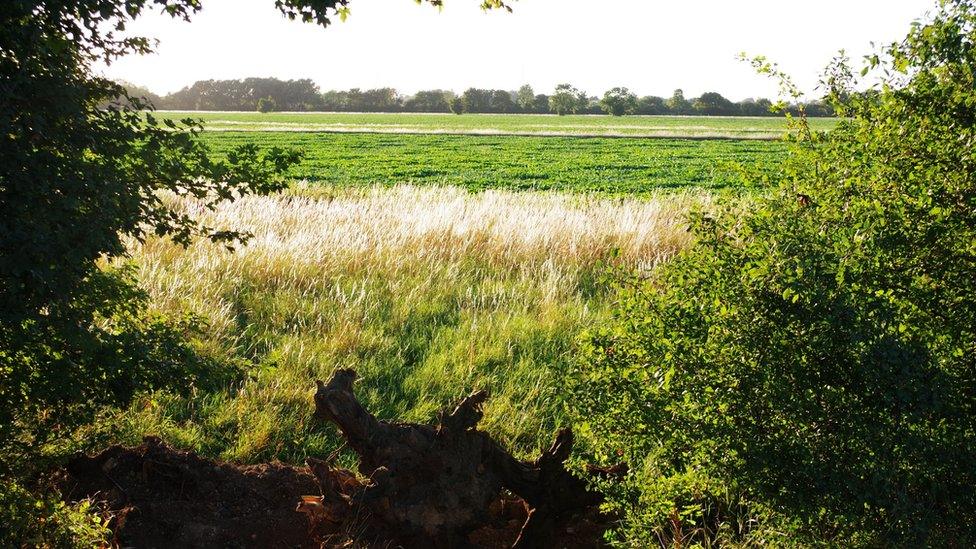
Anglian Water said its preferred location for a new wastewater treatment site was on land between Fen Ditton and Horningsea on the north-east fringe of Cambridge
The Horningsea site next to the A14, known as Honey Hill, has been chosen out of three sites earmarked for the treatment plant.
The other two options were located between the villages of Milton, Impington and Landbeach.
Mrs Morris, who has lived in Horningsea for nearly 30 years, told the Local Democracy Reporting Service: "Anglian Water has said the relocation project is not an operational necessity.
"We will continue the battle - This is by no means a done deal."
She said as well as the impact the development would have on greenbelt land, the decision to build on an aquifer [an underground layer of water-bearing permeable rock] would leave the area vulnerable to contamination.
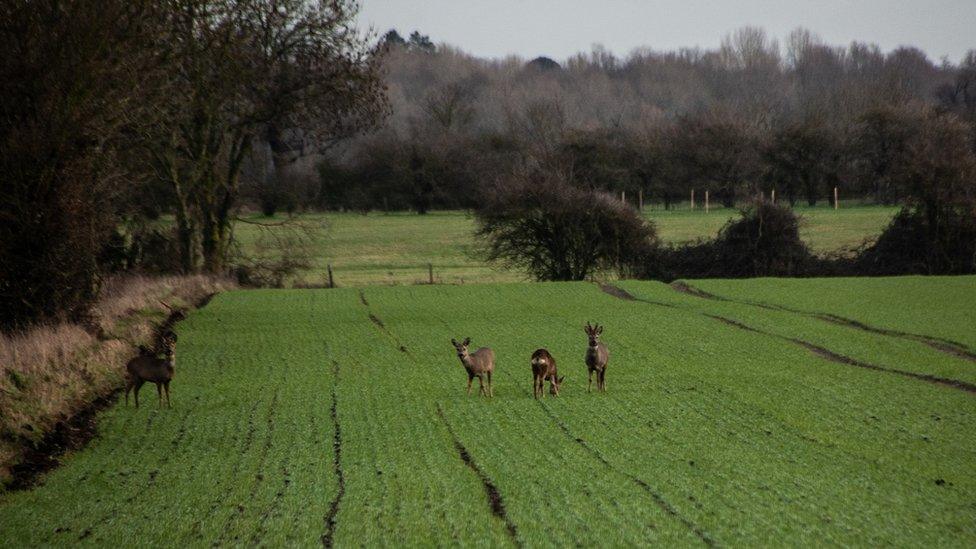
Catherine Morris said she feared land around the proposed water treatment works would be at risk of contamination
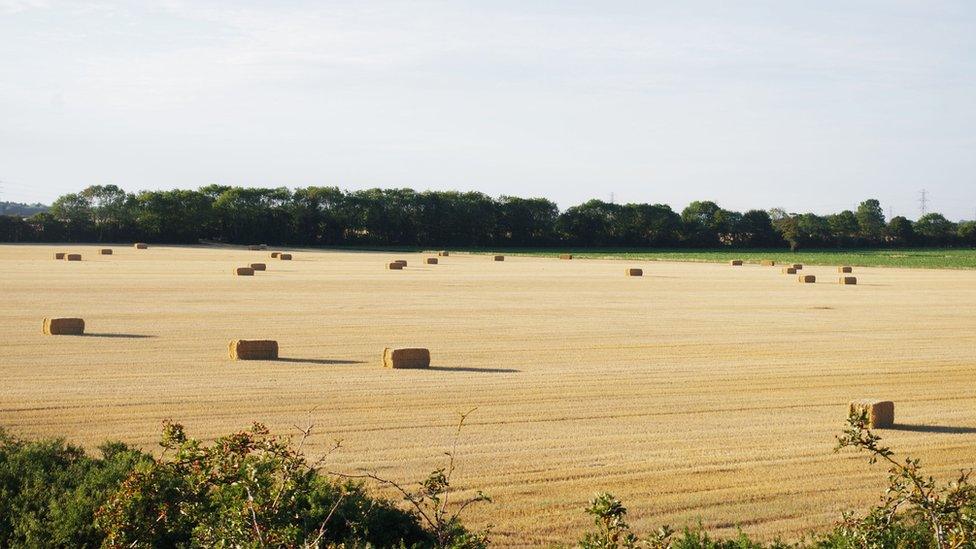
Anglian Water said the new facility will come with opportunities to connect and improve access to the countryside
Mrs Morris also questioned the need for the Cowley Road development, particularly the construction of office space at a time when companies were considering more home-working in the light of the coronavirus pandemic.
Landbeach resident Gemma O'Shea, who had campaigned against the plant being built there, said she was relieved.
"All of the sites had valid reasons why they shouldn't be used," she said.
"Personally I feel it should stay where it is."
Anglian Water said the plant would recycle waste water, produce green energy and return clean water to the River Cam.
Head of the Cambridge Relocation Consultation for the utilities firm, Karen Barclay, said the facility "will be surrounded by carefully created habitat for wildlife, along with opportunities to connect and improve access to the countryside".
The relocation plan is considered a nationally significant infrastructure project, meaning it will not go through the usual council planning process, and instead Anglian Water will be seeking a development consent order, which will require an application to the national Planning Inspectorate, external.

Find BBC News: East of England on Facebook, external, Instagram, external and Twitter, external. If you have a story suggestion email eastofenglandnews@bbc.co.uk, external
- Published9 June 2020
